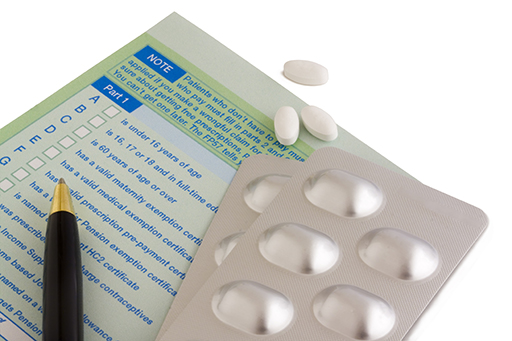Reasons to welcome the prescribing review
In Views
Follow this topic
Bookmark
Record learning outcomes
What's been happening under cover with prescribing is now out in the open, says Noel Wicks

It seems that NHS England is taking a leaf out of the book of certain CCGs with its recent announcement to review a selection of €low value€ medicines that it believes may have limited clinical value. The 10 items include tadalafil, travel vaccines, lidocaine plasters, fentanyl and doxazosin. In total, this could yield about £130 million in savings, although I imagine this assumes that no alternatives are prescribed.
This seems a far cry from the £400 million that Simon Stevens suggested could be saved by this review. So where is the rest coming from? Alongside this initial list of specified medicines NHS England also intends review other areas such as gluten-free foods and minor ailments including hayfever, pain and indigestion.
I think we can all see what's coming in the post with this one. I'll be amazed if we don't end up with a system of half measures with various rules, exemptions and qualification criteria. I can easily imagine something like, €You can have paracetamol if it's 100 for chronic pain, but not if it's 32 for short-term use,€ or €If you have severe allergic rhinitis you can have a steroid nasal spray, but not if it's mild and only needs treatment with antihistamine tablets€.
If this does end up being the case, then I've no doubt it will be down to pharmacy staff and GPs to bear the brunt of explaining this to the public.
I also suspect that policing the system will fall under the remit of these same healthcare professionals. In which case, there will undoubtedly be situations where larger quantities or stronger medicines are used in order to get round the system. If that does happen, then it begs the question: will any of the supposed savings actually come to fruition?
One area that would definitely deliver on expected savings is gluten-free foods. It's interesting reading the comments of the public regarding this area in particular.
In general, even coeliac patients accept that gluten-free produce has become more widely available and is reducing in price. However, people are also quite right to point out that, like for like, gluten-free produce is still significantly more expensive than gluten-containing alternatives, and that the foods being prescribed to them are being recommended by NHS dieticians.
We could be here all day discussing what conditions the NHS should and shouldn't treat, but underneath all this there's a much more important question. Is the NHS still able to live up to its three core principles: that it meets the needs of everyone, that it is free at the point of delivery and that it is based on clinical need and not on ability to pay? To my mind, this review goes to the very heart of these principles.
In some ways, perhaps we should welcome this review €“ as a timely exposure of what has been happening at a local level without consultation. Many CCGs in England have been imposing pressure on prescribers to make savings such as these for some time, and it is about time that the implications of this are brought out into the open for wider debate.
- Noel Wicks is a pharmacist and independent pharmacy group owner.
